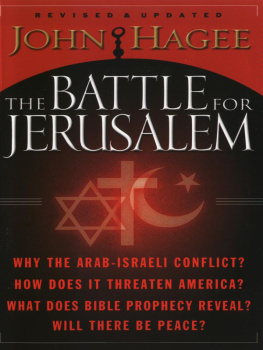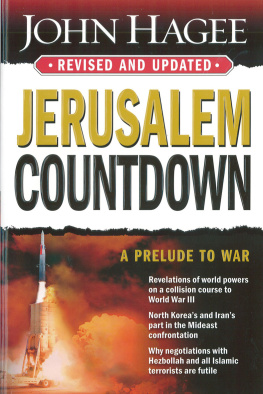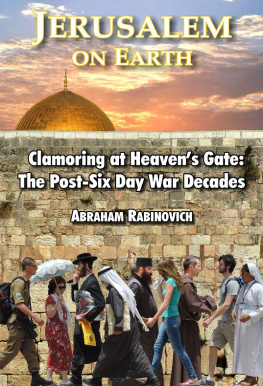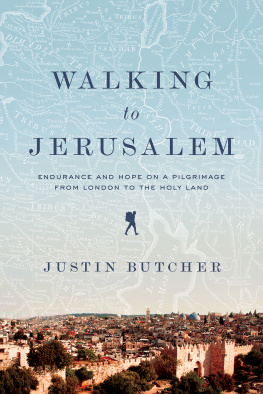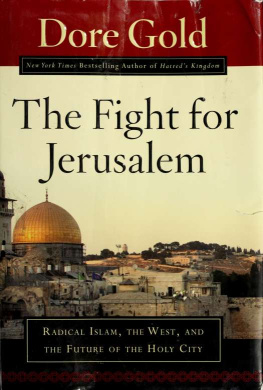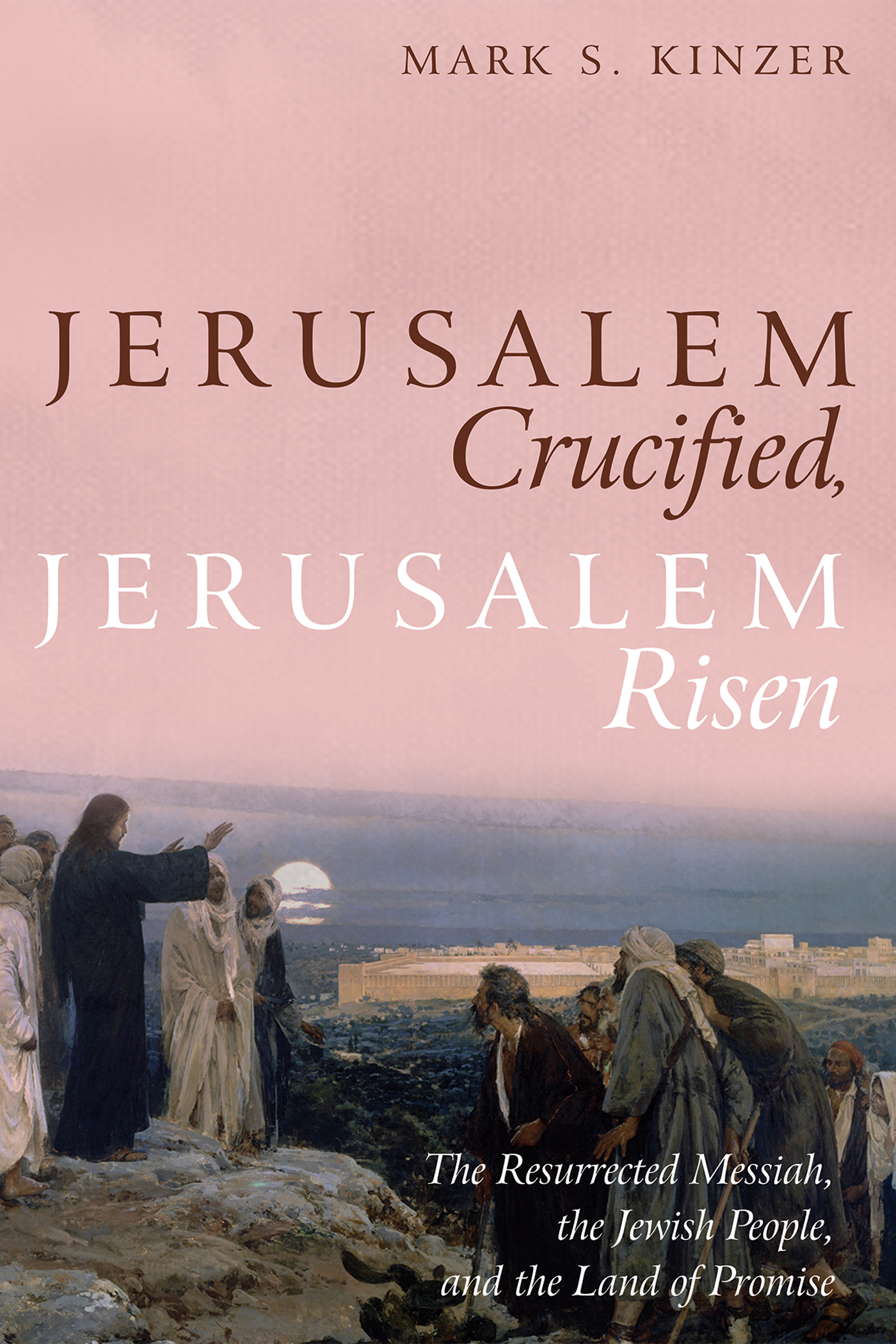The writing of this book was a painfully difficult task. I began the project in 2011, and am making these overdue acknowledgements seven long years later. While the essential thesis has remained unchanged throughout, I have wrestled over those years with the best way to convey my message and demonstrate its force. At each step along the way I have learned new things, and, I hope, the text has matured along with its author.
I am grateful to Markus Bockmuehl, Gerald McDermott, Isaac Oliver, Ray Pickett, David Rudolph, Kendall Soulen, Fr. Justin Taylor, and Joel Willitts, who all read an early draft of this work, and offered wise counsel directed to its improvement. Their advice helped me greatlythough I assume that each will find much that still could be stated better.
I am also grateful to Gavin DCosta who read a later draft, and provided much needed guidance and encouragement.
I am most thankful to my editor, Robin Parry, and all the dedicated staff at Wipf and Stock. Publishing for them is a calling and a mission, and not merely a business. They are trusted colleagues, and also faithful friends.
I am most indebted to my wife Roslyn, and her mother Helen, who bring me back to earth each day. Because of them (along with Rivka, our Boston Terrier) there is no place I would rather be than my own home... except, of course, Jerusalem. To Roz, the love of my life, I dedicate this book.
Introduction: Jesus, Israel, and the Prophetic Euangelion
A De-Judaized Euangelion
Now I would remind you... of the good news [ euangelion ] that I proclaimed to you... that Christ died for our sins in accordance with the scriptures, and that he was buried, and that he was raised on the third day in accordance with the scriptures, and that he appeared to Cephas [i.e., Peter], then to the twelve. ( Cor : , )
... the gospel [ euangelion ] of God, which he promised beforehand through his prophets in the holy scriptures, the gospel concerning his Son, who was descended from David according to the flesh and was declared to be Son of God with power according to the spirit of holiness by resurrection from the dead, Jesus Christ our Lord.... (Rom : )
The euangelion (good news or gospel) which Paul and his fellow apostles proclaimed transformed the ancient world. It reshaped the personal lives of individuals as well as the corporate life of the societies in which they resided. While some found its message neither believable nor salutary, those who embraced the euangelion celebrated it as the power of God for salvation (Rom : ).
The message itself spoke of a particular Jewish man, who was heralded as the Christthe royal Messiah descended from David whom the Jewish people had long awaited. The message had been promised beforehand... in the holy scripturesthe sacred writings composed, preserved, and studied by generations of Jews. All of the apostolic witnesses to his resurrection were Jews, as were the first recipients of their message, and the movement they launched had its worldwide center in Jerusalem, the capital city of the Jewish people.
Nevertheless, within a century the community born from this euangelion was largely gentile in composition. More significantly, the way these gentiles interpreted the apostolic message resembled nothing that a Jew would call good news. They rejoiced at the destruction of the city of Jerusalem, and understood that event as the definitive termination of the Jewish peoples priestly role among the nations. Some expected an eschatological restoration of Jerusalem, while others rejected such a crass material hope, but few of these gentile heirs of the euangelion thought that Jews would have any distinctive identity or positive function in the age to come. When individual Jews somehow managed to overcome these impediments and sought baptism, they were discouraged or forbidden from observing Jewish practices or participating in Jewish communal life. If a multitude of Jews had taken that course, the Jewish people would have been decimated as a historical community. The good news as now proclaimed by the ekklsia could hardly be recognized as the power of God for salvation for the Jewish people, or as in any sense good from a Jewish perspective.
Few twenty-first century Christians would condone the virulent anti-Jewish rhetoric of that contentious ecclesial era. Most respect their Jewish neighbors and the Jewish tradition. Taking seriously the Pauline assertion that the gifts and the calling of God are irrevocable (Rom 11:29), many Christians today even believe that the Jews remain special to God. But this belief in the enduring character of Gods choice of the Jewish people has no discernible connection to the gospel these Christians affirm and proclaim, which in its Jewish implications differs little from that announced in the second century. The death and resurrection of Jesus still have no positive bearing on the historical life or eschatological destiny of Jews as a priestly nation. These redemptive events may no longer be bad news for the Jewish people, but they are hardly news at all.
A Jewish and Prophetic Euangelion
In the present volume, I argue that it was not always so, and that it should no longer be so. I propose an interpretation of the euangelion in which the death and resurrection of Jesus are inseparable from the historical journey and eschatological destiny of the Jewish people. The message received from the apostles is thus inherently prophetic in character, pointing to an accomplished redemptive act by Israels Messiah but also to that acts future outworking in the life of the Messiahs Israel. Moreover, the Messiah and his people according to the flesh retain a special bond with the land of Israel and the city of Jerusalem, and the death and resurrection of the Messiah are as inseparably tied to the destiny of that place as they are to the life of that people.
The first steps in such an argument have been taken in the seminal writings of N. T. Wright. With compelling force Wright rejects the notion that the euangelion is an abstract and timeless system of theology that addresses individual souls and promises them the reward of a beatific afterlife in heaven. These are the verses he has in mind:
How beautiful upon the mountains are the feet of the messenger who announces peace, who brings good news, who announces salvation, who says to Zion, Your God reigns. Listen! Your sentinels lift up their voices, together they sing for joy; for in plain sight they see the return of the Lord to Zion. Break forth together into singing, you ruins of Jerusalem; for the Lord has comforted his people, he has redeemed Jerusalem. The Lord has bared his holy arm before the eyes of all the nations and all the ends of the earth shall see the salvation of our God.
Wright suggests that Jesus read these verses concerning the good news of Israels return from exile in light of the chapter that follows (Isaiah 53) which describes the suffering servant: [I]f, then, we ask how the message of Isaiah 52.712 was to be put into effect, the prophecy as Jesus must have read it had a clear answer. The arm of YHWH... was revealed, according to Isaiah 53.1, in and through the work of the servant of YHWH. While Wrights reconstruction of the reading strategy of the historical Jesus may be open to debate, it is clear that the authors of the Synoptic Gospels read Isaiah 5253 in this manner. According to Mark, Matthew, and Luke, the euangelion deals with the restoration of Israel, and it is put into effect through the suffering and death of the servant of the Lord .




